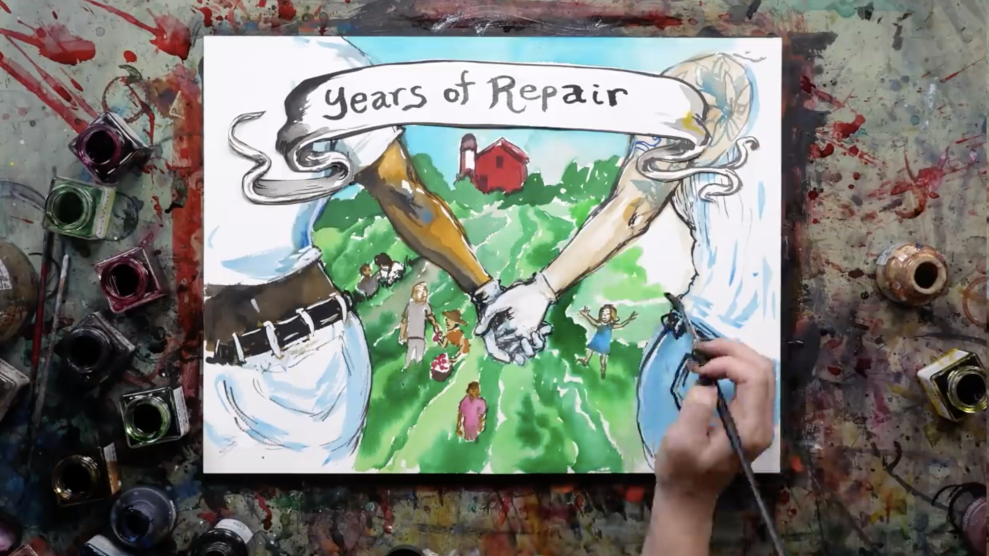
Screenshot from "A Message From the Future II: The Years of Repair," animated by Molly Crabapple.The Intercept and the Leap
“You can’t be what you can’t see”: This proverb often comes up in discussions of why representation matters. A young girl of color, for instance, might be less likely to believe she’s able to become a successful actor or politician if she doesn’t grow up seeing people who look like her in such roles. Yet in an Emmy-nominated video produced last year by Naomi Klein and the Intercept, Rep. Alexandria Ocasio-Cortez (D–N.Y.) offered this same idea as a clue for how to realize the dream of the Green New Deal.
“We knew that we needed to save the planet and that we had all the technology to do it,” Ocasio-Cortez said in a “Message From the Future,” her voice laid over evolving visions painted by artist Molly Crabapple. “But people were scared. They said it was too big, too fast, not practical. I think that’s because they just couldn’t picture it yet.”
A year and a half later, the challenges we face have only become more daunting, and the solutions even tougher to imagine. That might explain why “A Message From the Future II: the Years of Repair” (released this week) has a grittier, if still dreamy, tone. It imagines a future in which humans endure COVID-23 in widespread refugee camps amid mounting climate devastation—yet thanks to concerted collective action, these calamities change the world for the better, fostering a greener, decolonized, and more democratic society.
The video offers hope because it assumes that even if we can’t yet see them, there are better days waiting for us on the far side of today’s madness. But the imagery also centers rent strikes, uprisings, and worker solidarity: seeds of a transformed future already taking root in the present.
Featuring voices from around the world and a story co-written by Klein, Canadian filmmaker Avi Lewis, and Black Lives Matter co-founder Opal Tometi, “The Years of Repair” broadcasts a refreshing infusion of hope.















